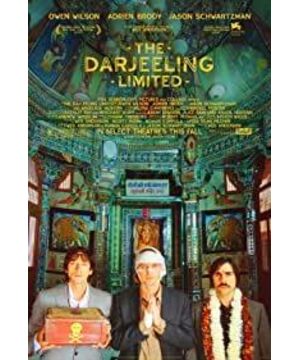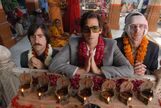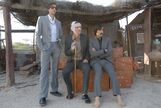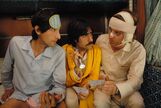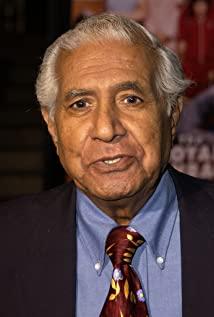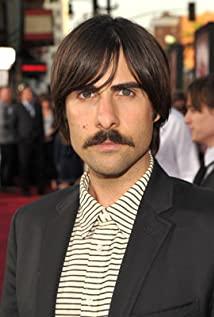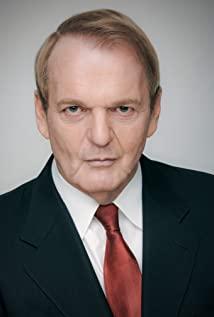After reading a circle of film reviews, I didn't find a particularly satisfactory answer, so I'll just summarize it myself.
1. Why Darjeeling and not any other area with oriental character?
Because Darjeeling is the most suitable. There's a reason why the director chose Darjeeling in a film that is full of metaphors.
If you look at the history of Darjeeling, you can know: Darjeeling produces black tea, and it is the world's three major high-scented black teas, along with Chinese Qimen black tea and Ceylon Uwa black tea. It is known as "champagne in tea". The soup is orange-yellow, fragrant and fragrant, just like the main tone of green and yellow in this movie, rich and beautiful, and the bitterness of life in it is like the bitter bottom taste of tea.
In addition, the name "Darjeeling" is a combination of two Tibetan words dorje (perak) and ling (place), which is translated as "The Land of King Kong". Kindness, doesn't it allude to the relationship between these three brothers? From the beginning of distrusting each other, even rejecting hostility, quarreling and fighting, to later because of a desperate rescue of a child who fell into the water, the kindness in his heart was inspired, saying that it was saving the victim, but it was actually saving himself.
Darjeeling also experienced a separatist movement in history. In the 1980s, it and nearby Kalimpong demanded the establishment of a separate main center for Gurkha State, but this tendency to separate was gradually cooled by the establishment of an autonomous mountain council. This and the three brothers separated for a year without saying a word, and then reconnected because of this trip, forming a coincidence.
In addition, in 1999, the Darjeeling Himalayan Railway was declared a World Heritage Site by UNESCO. The history and scenery are well-known and charming. As a road film, to make such a film, there are better ones besides Darjeeling. choose?
2. The relationship between the three brothers, why do they look alike?
Because they are likely adopted.
This should be inferred from when they meet their mother at the end of the film. The mother spread Christianity in India, and the missionary church seems to have adopted many children. The three brothers are also likely to be the children their parents adopted from the church. Later, the mother went on to preach and help other children in other places, and the father became the only core of brotherhood in the family. Suddenly, the father was killed in a car accident, and the mother was not there. The three brothers, who had no blood relationship, broke up because of this, and there was no contact until the boss proposed this spiritual journey.
3. How did the three brothers in the film obtain spiritual redemption?
The trip was defined by the three brothers as a spiritual journey, and the destination was the place where the mother preached. What specific details in the film may have allowed them to obtain spiritual redemption?
Let's talk about the second child first, AB with a bitter look played the most joyful role in the play this time. From the first time he caught up with the train, he put on his reading glasses and glanced at Bill Murray, who had not caught up with the train. I thought that the old actor Bill Murray would at least be a supporting role with a lot of lines, but because he didn't catch the train, he didn't have anything to do, what kind of words!
Speaking of which, when his father had a car accident, AB was the first to arrive at the scene, hugging his father who was lying in a pool of blood, but he didn't hear his last words, and he lost himself. During this trip, the three brothers separated to rescue the three children who fell into the water, but only AB did not rescue him. Even though he tried his best to be covered in blood, he was injured a lot.
This caused AB to blame himself to the point of collapse. When he left the village for the first time, he couldn't help but confided to the little boy, saying that he had not spared no effort to save the child. . The boy understood what he said and went back to tell his family. The adults woke up from their grief and invited the three brothers to the funeral. Because of this, AB feels that he has been forgiven, together with the time his father died, because these two times were actually accidents.
AB's heart knot is that he witnessed his father's tragic death and almost missed his father's funeral because he insisted on picking up the car, so he didn't say goodbye.
Let's talk about the third. He just broke up with his girlfriend, but he kept eavesdropping on his girlfriend's phone messages. Judging from an affair on the train, the reason for their breakup should be that the girlfriend cheated, and the man was still reluctant to part, so he also cheated on the revenge. And he was comforted by the beautiful Indian female flight attendant weeping for him when they were driven off the train. It seems that they are not that bad, and some people cry for themselves. Although it was originally just a show.
Finally, the boss, his entanglement may lie in his sense of responsibility. During a ride, the eldest almost died in a car accident like his father, and the first thing he thought of when he woke up was his two brothers. So he decided to replace his father to make up for the rift between the brothers, so he had this spiritual journey. His goal was finally achieved. The estrangement between the brothers was resolved at the Indian funeral, and the mother finally met because the three brothers suddenly changed their minds at the moment they got on the plane. It's enough to see her mother and ask why she didn't attend her father's funeral that year. It doesn't really matter what the reason is.
What is the metaphor for chasing a train?
In the film, there are two main parts of chasing the train, one is AB chasing with luggage, which means that he is carrying the past and set off to find it. In the other part, the three brothers threw away all their luggage and chased at the end of the film, which means to leave the past behind and start over. Luggage is like a load-bearing shackle, and the train represents a new journey. Some people say that putting aside the past and returning, this is the meaning of travel.
Finally, I cut out 4 good songs in the film, which also showed the scenery and various expressions of the Darjeeling Himalayan Railway very well.
View more about The Darjeeling Limited reviews


